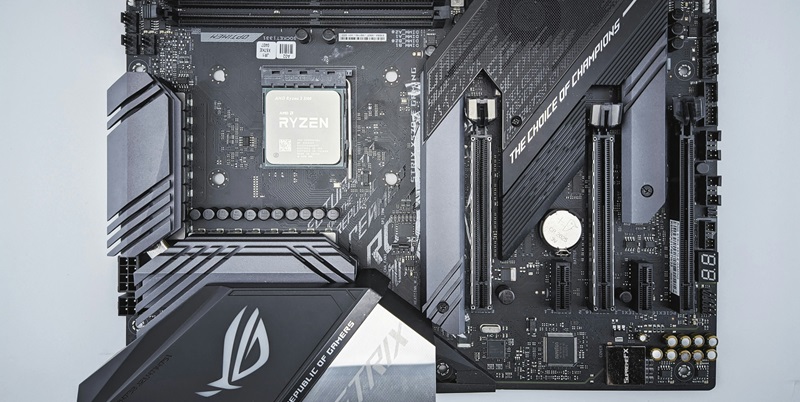Recent performance issues with AMD’s CPUs, particularly the Ryzen 7 9700X and older models like the Zen 4 Ryzen 7 7700X, have generated considerable concern among users. These processors have notably fallen short of the speed claims made by AMD, triggering a wave of frustration and questions regarding the underlying causes. The company has attributed these performance discrepancies to inefficiencies in how Windows manages branch prediction, a pivotal process for CPU performance. However, in a bid to address these concerns, Microsoft has rolled out a consequential Windows update (KB5041587) to the current 23H2 build, integrating essential changes from the upcoming Windows 11 24H2 update.
Microsoft’s Response: The Crux of the Update
Optimizations in Branch Prediction Handling
The update targets a fundamental aspect of CPU performance: branch prediction, which allows processors to execute instructions speculatively. Inefficiencies in this area significantly impair overall system speed, explaining the underperformance of AMD’s touted CPUs. The Windows update KB5041587 backports crucial optimizations, repositioning how Windows handles branch prediction. By doing so, the update enables the CPU to perform speculative execution more efficiently, translating into notable performance gains. Speculative execution had garnered negative attention in the past due to the Meltdown CPU vulnerability, necessitating security patches that adversely impacted performance. Yet, with these contemporary optimizations, speculative execution can once again be harnessed for substantial performance improvements.
Initial benchmarks post-update have evidenced remarkable enhancements in gaming performance, with some titles enjoying up to a 30% boost. This result underscores the importance of software updates in leveraging hardware capabilities fully. Particularly for gamers and power users, this update reinstalls confidence in their AMD-based systems, proving that AMD’s hardware, when paired with optimally tuned software, can indeed live up to its performance promises. The collaboration between Microsoft and AMD in addressing such performance issues exemplifies the potential benefits of synergies between hardware manufacturers and software developers.
Significance for AMD Users
For AMD users, this update signifies more than just improved gaming performance. It validates their investment in AMD hardware and demonstrates the power of iterative, responsive software enhancements in resolving what initially appears as hardware constraints. Users who were once grappling with subpar performance can now extract the full potential of their CPUs, thanks to this much-needed software refinement. This scenario also hints at a future where more seamless updates can address issues in real-time, alleviating the need for extensive hardware alterations or replacements.
Furthermore, this development sets a precedent for the industry. Timely software updates optimized for specific hardware architectures can result in considerable performance gains, fostering a more dynamic interaction between software and hardware development cycles. As demonstrated, the collaborative approach taken by AMD and Microsoft has led to tangible benefits for end-users, underscoring the pivotal role such partnerships play in enhancing technology ecosystems.
Future Prospects with Windows 11 24
Additional Features on the Horizon
While addressing the immediate CPU performance issues, the forthcoming Windows 11 24H2 update promises a plethora of new features. These enhancements include a revamped Copilot app that users can move freely around the screen, multi-page quick settings, and innovative functionalities like real-time video transcription via Live Captions. Such additions reflect Microsoft’s commitment to not only fixing existing problems but also enriching the overall user experience with sophisticated tools that increase productivity and ease of use.
Phone Link, an already popular feature, is set to become even more accessible from the taskbar and start menu, enhancing its utility. This ease of access means users can seamlessly connect and manage their smartphones directly from their PCs, integrating their digital lives more cohesively. Additionally, the update will introduce improved ARM support with better x86 emulation, specifically benefitting Copilot+ PCs. These comprehensive updates are indicative of Microsoft’s broader vision for an interconnected and highly efficient operating system environment.
The Evolving AMD-Microsoft Partnership
The recent performance issues with AMD’s CPUs, especially the Ryzen 7 9700X and older models like the Zen 4 Ryzen 7 7700X, have caused significant concern among users. These processors have been noticeably underperforming, not meeting the speed standards that AMD had advertised. This has led to a wave of frustration and raised questions about the root causes. AMD has pointed to inefficiencies in how Windows handles branch prediction—a crucial process for CPU performance—as the main issue. In response to growing user dissatisfaction, Microsoft has taken action. They have released a substantial Windows update (KB5041587) for the current 23H2 build. This update incorporates vital modifications from the upcoming Windows 11 24H2 update, aiming to resolve these performance problems. Consequently, users can expect improved CPU performance following this update, addressing the concerns that have plagued these AMD processors. By focusing on these critical changes, both AMD and Microsoft hope to restore user confidence and enhance overall performance.

